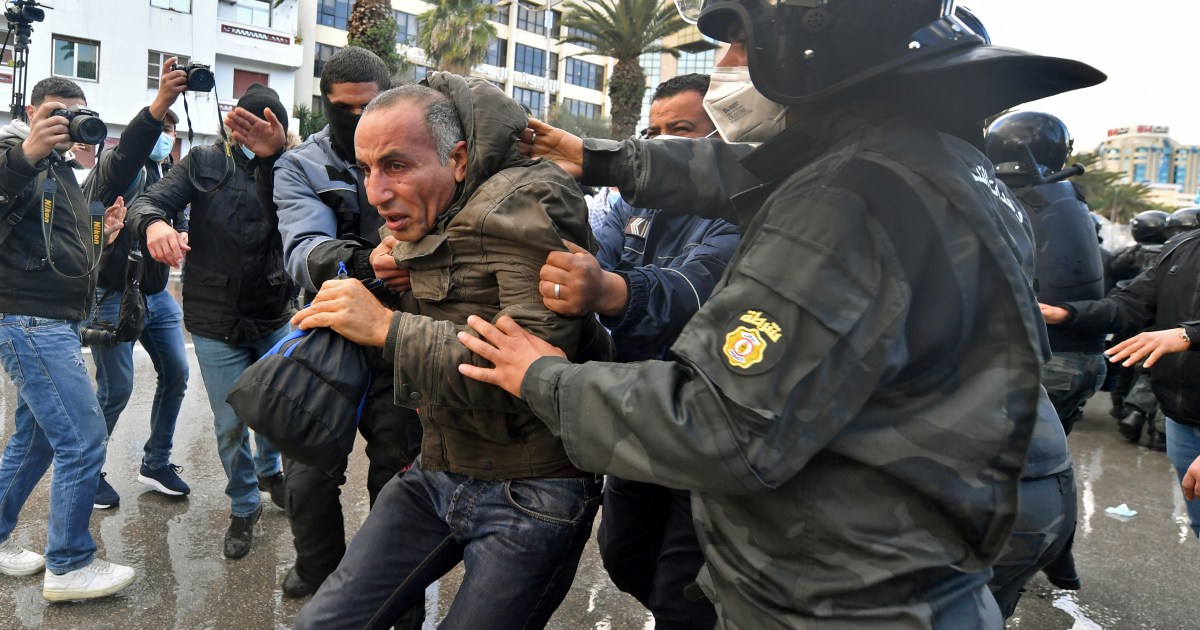The Tunisian government's presidency announced the extension of the night curfew and the ban on demonstrations and gatherings in public places for another two weeks.
The Tunisian government began implementing these measures on January 12, and said that it did so in implementation of the decisions of the Ministerial Council meeting - which took place the day before yesterday - Tuesday - regarding confronting the development of the epidemiological situation in the country, and based on the recommendations of the Scientific Committee.
On January 12, the government took measures that it said were precautionary to limit the spread of Corona, which included a night curfew and the cancellation or postponement of all demonstrations in open and closed spaces.
However, political parties and civil forces challenged these measures and considered that their aim was to crack down on opponents of President Kais Saied, who have been demonstrating for weeks against the measures he took on July 25.
square fear
On the other hand, Samira Chaouachi, First Deputy Speaker of the Tunisian House of Representatives, a commentator and leader in the Citizens Against the Coup initiative, said that what she called the "repressive machine" in Tunisia has risen since the coup, "which is a dangerous and unacceptable matter."
And Samira Chawashi considered - in an interview with her on the "Without Borders" program on Al-Jazeera - that this atmosphere brings Tunisians back to the square of fear.
For his part, the Secretary-General of the Republican Party, Issam Chebbi, said that it is not acceptable to continue what he called "the continuation of the country's future and the continuation of the crisis to the will of a person who refuses dialogue."
Chebbi emphasized that the party had presented an initiative for a comprehensive national dialogue with the lively political and civil forces, and that President Kais Saied refused to be part of this dialogue.
The Secretary-General of the Tunisian Republican Party added that Said "chosen to isolate himself from society and the living forces and to proceed alone in implementing his own agendas at a time when the country is facing the threat of collapse," as he put it.
defending the constitution
On Wednesday, former Tunisian President Mohamed Moncef Marzouki called on Tunisians to "defend their constitution and protect their homeland."
This came in a speech by Marzouki on his Facebook page coinciding with the "8th anniversary of the issuance of the first democratic constitution in the history of Tunisia," as he put it, corresponding to January 27, 2014.
Marzouki considered that "Tunisia's sinking into economic and social problems, and its tendency towards further impoverishment of the poor and the collapse of the middle class, was caused by the coup against the 2014 constitution," referring to the exceptional measures taken by President Kais Saied.
In previous statements, Said considered that Tunisia's crisis lies in the 2014 constitution, which he said "is no longer valid and has no legitimacy in Tunisia."
Tunisia has been suffering, since last July 25, from a severe political crisis when Said began imposing “exceptional” measures, including freezing the powers of Parliament, issuing legislation by presidential decrees, dismissing the prime minister and appointing new ones.
The majority of political and civil forces in Tunisia reject these measures and consider them a "coup against the constitution", while other forces support them as a "correction of the course of the 2011 revolution", which overthrew the rule of then-President Zine El Abidine Ben Ali (1987-2011).

